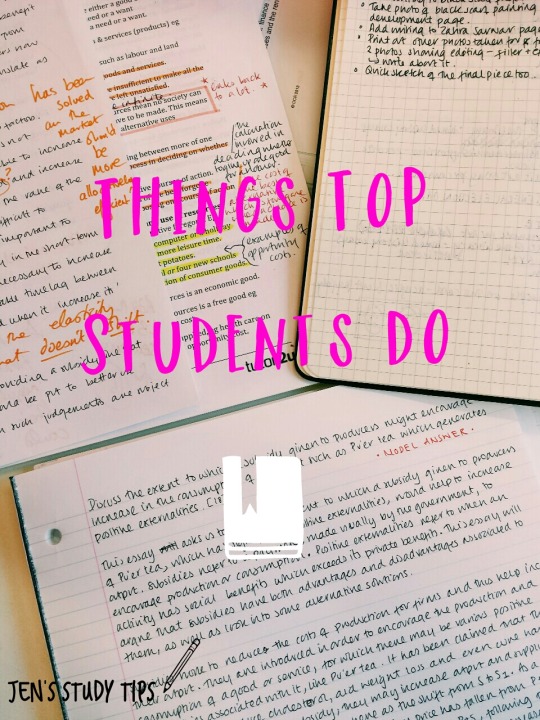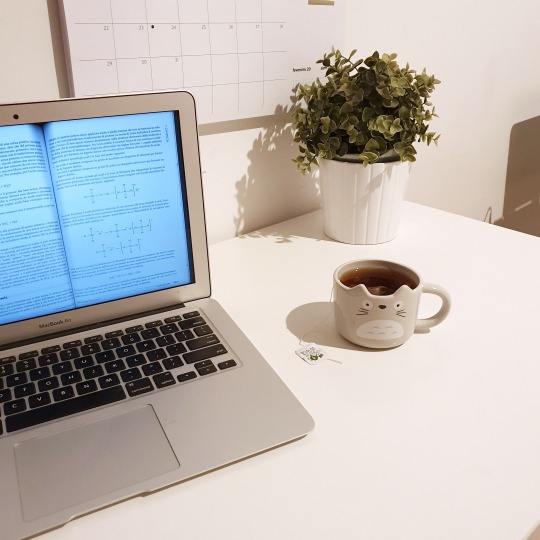Don't wanna be here? Send us removal request.
Text
La impaciencia; el signo característico de la inmediatez.
Dentro de las enfermedades que asolan nuestro pensamiento podemos describir una bastante interesante y que, sin duda alguna, hemos presentado todos en algún momento de nuestra vida. Me refiero a la inmediatez. Esta enfermedad se caracteriza por una insaciable búsqueda de objetos, situaciones, relaciones, experiencias, en fin, de cualquier “algo” que impresione al alma. Aquel que la padece no logra llenar esas necesidades por más que lo intente, y parece que esta misma característica es la que lo impulsa a seguir su búsqueda de nuevos “algos”. He conocido pacientes que la padecen y podría clasificarlos en distintos grupos según su afición principal, pero recordando que todos tienen un rasgo en común: la impaciencia de esa nueva experiencia que impresione su ser.
La impaciencia es el signo capital que presentan los enfermos de inmediatez. En algunos llega a ser muy grave, pues no han terminado de experimentar un “algo” cuando ya su alma les exige otro nuevo, y la sola idea de esperar para obtenerlo es agobiante. Cabe resaltar que este estado patológico es muy diferente y mucho más nocivo que la simple impaciencia por tareas comunes, como estar en una fila realizando un trámite o encontrarse en medio de un embotellamiento. La impaciencia presente en la inmediatez escapa de la razón y del sentido común, escapa de las noxas que comúnmente afligen al ser humano. Tampoco se acompaña de temor como el que aparece en situaciones riesgosas o estados ansiosos, simplemente es una impetuosa necesidad de mantener al alma excitada en todo momento.
Ahora bien, seguro cualquier persona en su vida ha experimentado en ese estado de vigorosa excitación que le pide no detenerse, sino aumentar la experiencia o buscar algo que la haga más emocionante, el problema radica cuando el tiempo comprendido entre una experiencia y otra se acorta continuamente hasta prácticamente desaparecer, haciendo que el paciente que sufre de inmediatez no pueda permanecer tranquilo realizando una tarea mundana, apacible y poco emocionante (las tareas que imperan en nuestra época). El que padece esta enfermedad no puede dejar a un lado su impaciencia; el tiempo le apremia constantemente, apura sus platillos, sus citas, conduce rápidamente y no acepta un pequeño atascón en la hora pico del tráfico, incluso sus relaciones se acortan considerablemente, haciéndolo un buscador constante de amigos y parejas que lo acompañen en sus aventuras. Aunque esta enfermedad es cada vez más común, el que sufre inmediatez tarda bastante en encontrar compañeros que le sigan el paso, haciendo frustrante su vida personal por la impaciencia de conocer alguien capaz de seguirle el paso.
Otras características típicas del que sufre inmediatez pueden ser vistas a continuación:-Inconclusión de estudios, cursos o actividades académicas por iniciar otras nuevas una vez que las primeras pierden el impulso inicial.-Andar rápido por las calles, conducción a altas velocidades.-Inestabilidad social, relaciones fugaces.-Necesidad imperiosa de reacomodar muebles y realizar modificaciones en su hogar.
Quien padece inmediatez es una víctima de lo estático, requiere que su mundo se mueva a la velocidad del propio pensamiento para sentir que avanza. La sola idea de permanecer en un sitio es dolorosa. Siendo así, al percibir que la vida es estática, que las emociones se enfrían, el inmediato presenta impaciencia y esta se convierte en el principal motor de su vida. Realiza nuevas actividades, cambia su círculo de amigos, se deja caer en una espiral de experiencias, una tras otra como hace el fumador en cadena, sin siquiera permitir que la previa sea concluida.
44 notes
·
View notes
Text
“I think it’s very healthy to spend time alone. You need to know how to be alone and not be defined by another person.”
— Oscar Wilde
10K notes
·
View notes
Quote
“There is no limit on better. Talent is distributed unfairly, but there is no limit on how much we can improve what we start with.”
Kevin Kelly (via movemequotes)
106 notes
·
View notes
Text


a really mini room tour because i've been organizing it today 💗💫 quarantine has awakened a cleaning drive in me i've never had before :')
studygram
3K notes
·
View notes
Photo

i found some japanese raws for my favourite manga (which is almost entirely in kansai-ben) so i can’t wait to get back into reading and learning again:)
772 notes
·
View notes
Text
"Time is a game of odd and even numbers"
-S.S.K
215 notes
·
View notes
Text
New Year’s resolution ideas for students
Finish all your schoolwork by 11 pm each day
Limit yourself to one cup of coffee a day
Get at least a B in all of your classes (or set goals for individual classes)
Stretch for 10 minutes before bed
Read a book each month for leisure
Get at least 7 hours of sleep every night
Spend less than two hours on social media a day (or some other time limit, depending on where you are now!)
Journal every day
Leave for class 5 minutes earlier than you need to
Listen to podcasts or watch documentaries instead of binging Netflix or watching YouTube
Get at least 1 hour of exercise a week
Only spend money on things you really need (not just things you want)
Finish papers at least a day in advance
Spend 30 minutes a day on self care
Wake up an hour earlier than you currently do every day
What are some of your resolutions (if you have any)? x
10K notes
·
View notes
Photo

Things Top Students Do
1. They don’t always do all of their homework.
In college, homework assignments generally make up 5-20% of your grade, but can be the biggest time-suck for most students. Yes, working problems is one of the best ways to turn new concepts into working knowledge, but a large majority of those problems that take you hours and hours to work through, you’ll never see on an exam.
2. They never “read through” the textbook.
Per time spent, reading the textbook is one of the least effective methods for learning new material. Top students use the examples and practice problems, but otherwise use Google, lecture notes, and old exams for study materials.
3. They Google EVERYTHING.
It’s like an automatic reaction. New concept = go to Google for a quick explanation. Don’t think just because your professor gives you a textbook and some examples on the blackboard that you’re limited to that information. You have a massive free search engine at your fingertips, so make use of it.
4. They test themselves frequently.
Testing yourself strengthens your brain’s connections to new material, and gives you immediate and clear feedback on whether you know something or not. Bottom line, repeated self-testing significantly improves long-term retention of new material.
5. They study in short bursts, not long marathons.
Studying in short bursts tends to help you focus intensely because you know there is at least a short break coming.
This also fits in nicely with our Ultradian Rhythm, the natural activity/rest cycle of our bodies, which makes studying continuously for multiple hours on end counterproductive.
6. They reverse-engineer solved problems.
It’s one thing to follow and memorize a set of steps to solve a calculus problem. It’s an entirely different thing to understand what a derivative is, be able to take derivates of complex functions, know when to use the chain rule vs. the product rule, etc. The problem with simply following the steps the professor provided, or the textbook outlines, is that you’re only achieving a surface-level knowledge of the problem. Top students, instead,take solved problems and work backwards, from solution to question, asking “why.”
Why did this get this value? Why did they simplify this expression? Why did they use that type of derivative rule?
By following this process, you begin to understand the interconnections of the concept, and how to directly apply that to a problem. This “working knowledge” of a concept is key to performing well on exams, especially on problems that you haven’t seen before.
7. They don’t own a highlighter.
Highlighting anything = unengaged reading. If you want to note something that stands out, underline and write a corresponding note to go along with it. Or better yet, write yourself a note summarizing the item in your own words.
8. They sleep–a lot.
The daily routines of top performers, in any field, are characterized by periods of intense work (4-6 hours per day) followed by significant quantities of high-quality sleep (9 hours per night). You see this trend in top violin prodigies and chess champions, as well as elite athletes. The idea is to alternate periods of intense work with rest, so that you create tons of new connections in your nervous system, and then allow adequate time to assimilate those gains.
9. They engage themselves by asking questions.
What happens if I tell you, “Thomas Jefferson almost single-handedly drafted the Delcaration of Independence in 1776.”?
You might say “Hmm.. that’s interesting”, try to remember it for later, maybe even write down a note or two.
But what if I ask you, “Who was Thomas Jefferson?” What changes?
You start searching your memory, sifting through images of old guys, founding fathers, thinking about the Declaration of Independence. You come up with your own narrative, and then realize that you have gaps.
When was he around again? And why was he so important?
You’ll probably find yourself going to Google to fill in the gaps. Through that process your learning will be much more deeply seated in your brain than anything your history teacher ever told you about him. That’s the power of asking questions.
10. They make the best out of lecture.
Yes, your professor sucks. Yes, lectures are boring. Yes, it’s either too fast so you can’t keep up and miss all the important stuff, or it’s way too slow and you start zoning out because you already understand everything.
The best students look at this this way: I’m going to be there no matter what, so what’s the best use of my time while I’m in the classroom? Ask questions, bring the textbook and look stuff up, focus on the important practice problems to copy down in your notes, try to anticipate what the professor is going to say, make note of anything they put emphasis on as a potential exam topic. All of these things make the time you have to spend in lecture more productive and engaging. And that’s less time you have to spend studying later on.
11. They over-learn.
School is hard enough, with the amount of studying and homework you have to do. And on top of all of that Facebooking you have to get done? It might seem ridiculous to suggest learning more than you have to.
What!? Are you insane!?
But this is precisely what top students do. And paradoxically, they end up spending less time trying to understand how to do homework problems, andless time studying for exams because of it. Because when you “over-learn” past what’s presented in class, you build a better framework for the subject.
Think of trying to remember some details about Abraham Lincoln’s life. You try to remember the dates of the Civil War, or what he said in the Emancipation Proclamation. You study the same facts over and over and over again… but it’s just boring, and you quickly forget. But what if you knew his whole life’s story? About how Lincoln suffered from bouts of depression, and his relationship with his wife suffered? You start to learn that the dude was human, and you start to relate to the things he did and the struggles he went through. Now you’ve constructed a story in your head. And studies show that humans learn best through stories. So yes, it’s more information, but your brain knows what to do with it now that all those random facts are linked together. More learning, but less rote memorization and struggling to remember random facts.
12. They immediately study their exam mistakes.
Most students get their exam grade back, flip through to see if the professor made any mistakes they can argue about, and then promptly shove it into their notebook, never to be seen again until the mad scramble at the end of the semester to study for the final.
Instead, top students ignore what they got right, and use their mistakes as an indicator of what to improve on.
13. They’re busy with work and side projects.
Yes, to do well in a course, you need to focus and put in the hours. But like many geniuses throughout history have shown, involvement in a diverse set of subjects, activities, and skill sets keeps you active, and provides you with a rich and diverse set of mental models to pull from.
Also, as they say, “If you need to get something done, give it to the busy person.” If you stay active in multiple areas, you don’t have time to procrastinate, and are forced to be efficient with your study time. This generally translates into quicker learning and better performance throughout the semester.
14. They use lecture as a detective mission.
Though completely unaware of this fact, your professor has tells. Yes, like in poker. Tells during lecture will hint at particular types of concepts and problems that will be emphasized on the midterm or final exam. The best students pay attention to topics professors spend a seemingly inordinate amount of time on and make note. Chances are you’ll see something related on the final.
15. They don’t wait for motivation to strike.
Motivation comes and goes, but studying for a degree requires persistence and consistency. Just like Olympic athletes train even on their worst days, the best students figure out how to get their coursework done when it’s the last thing they want to do.
16. They practice under test conditions. The old adage “practice makes perfect” isn’t totally true. Deliberate practice under the right conditions, with the correct mindset, is more like it. Instead of reading through all of the lecture notes and redoing old homework problems, top students make themselves practice exams, and rehearse their exam performance, under time pressure and in similar conditions (no notes, uncomfortable chair, quiet room, etc.) to what they’ll see on test day.
17. They use old exams.
Professors aren’t the most inventive folk. Along with coming up with lecture material and departmental responsibilities, they’re also primarily concerned with research. So typically midterms and final exams more or less look alike for similar courses year-to-year and even across universities. Because of this, old exams are a gold mine of opportunity for figuring out what problems you should be able to solve and study from.
18. They make their own study guides.
The best students don’t simply use the study guide the teacher provides, they create their own.
Creating the study guide is half the battle, requiring you to go through your notes, consolidate them, and organize them in a way that you understand–all valuable study activities. You’ll also be able to use your equations sheet much more effectively on the exam itself (if allowed) because you know exactly where everything is.
19. They actually write on paper.
Writing out notes on a laptop is efficient. Too efficient. Because it’s so easy to quickly type out exactly what the professor is saying, you don’t have to do the work of trying to figure out how to consolidate the information into your own shorthand. Some also believe that the act of writing helps retain more information.
20. They use the 80/20 rule.
Yes, some students who get good grades do every reading assignment, finish every practice problem, and attend every study session they can get their hands on. But these students are missing the point. There will always be an endless amount of information you could learn given the time and effort, but having the ability to discern what is worth learning will truly set you apart.
Top students identify the 20% of concepts they need to learn deeply, in order to determine 80% of their final grade. They focus intently on those few things, and simply ignore the rest. This is a formula for high performance, without hours and hours of busywork. And it translates seamlessly into the real world too.
21. They don’t complain.
Complaining simply has no place in the smart student’s repertoire. If something sucks, change it or ignore it, but don’t waste your time, energy, and mental state talking about it. Got a crappy professor? Either switch class sections or focus on teaching yourself. Horrible textbook? Find alternate resources (Google is free in case you hadn’t heard).
22. They learn by doing.
Any technical subject can only truly be internalized through use. Just like learning a new language, learning to be fluent in algebra or calculus requires active application of rules and formulas. Top students know there is a big difference between knowledge, and applied knowledge.
23. They take personal responsibility for learning the material.
The best students understand that they, and only they are truly responsible for their own education. So waiting to be spoon-fed by your professor and doing the homework assignments will never be enough. Despite your school’s best intentions, they’ll never be as committed to your academic success as you can be.
24. Following what they love
Those students you admire are passionate about what they are learning. They have the drive to develop their learning further based on their love of what they are discovering. This may not always be the case and is often unavoidable but if you follow what interests you and cultivate a curiosity of this area, your motivation to learn will thrive.
Not every student is the same and many top students don’t follow the status quo. The best way to create good habits for students is to try a variety of techniques and figure out what works for you.
25. Question your teachers Thinking outside the box is a cliche but certainly a reality for students. They question everything–especially test questions they get wrong. This attitude is important because it shows a general inquisitiveness that is essential in learning. As any parent of small children knows, questions are a way to gain knowledge. Teachers can’t be offended when a student asks a difficult question and parents should encourage this behavior.
26. They know the best way to study.
It is important to know the best way to study for yourself. Do you need pictures? Sounds? Study better in quiet or noisy environments? Figure out what works best for you so that you can make the most out of your study time.
27. They play hard.
We all know that a balanced lifestyle is the best way to stay mentally and physically healthy! Top students don’t spend all day in the library grafting (contrary to what you might think!) Rather, they take the time to put their studies aside and do something which is fun and exciting!
Source : 1 2 3 4
53K notes
·
View notes
Photo




hogwarts houses & claude monet | where do you belong?
12K notes
·
View notes
Text
“I did not care what it was all about. All I wanted to know was how to live in it. Maybe if you found out how to live in it you learned from that what it was all about.”
—Ernest Hemingway
102 notes
·
View notes
Text
“The first and final thing you have to do in this world is to last it and not be smashed by it.”
— Ernest Hemingway
448 notes
·
View notes
Text
“What if the grass is greener on the other side because it’s always raining there. Where the ones who never fail to give, hardly have enough to spare. Where the people with the broadest smiles, have a pillow filled with tears. And the bravest ones you’ll ever know are crippled by their fears. It’s filled with lonely people, but their never seen alone. Where those who lack real shelter, make you feel the most at home. Maybe their grass is greener, because they’ve painted on its hue. Just remember from the other side, your grass looks greener too.”
— Earnest Hemingway
527 notes
·
View notes
Text
“The most painful thing is losing yourself in the process of loving someone too much, and forgetting that you are special too”
— Ernest Hemingway
996 notes
·
View notes
Text
“Go all the way with it. Do not back off. For once, go all the goddamn way with what matters.”
— Ernest Hemingway
4K notes
·
View notes






